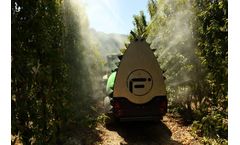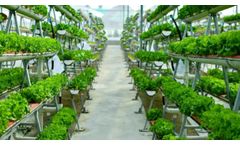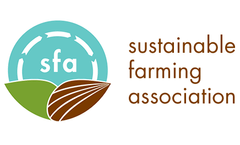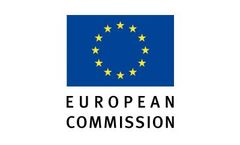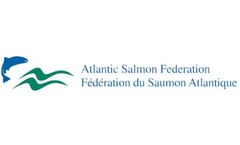Pesticide Use Reduction Articles & Analysis
24 news found
Berger (Head of Technology, Fede) is part of the focus group specialized in methods of reducing the use of pesticides in pome and stone fruit production, which has published the paper “Precision Agriculture – An enabler for pesticides use reduction”. ...
From the legendary Hanging Gardens of Babylon, built in the 6th century BCE during the reign of Nebuchadnezzar II (circa 605-562 BCE), to contemporary vertical farming, humanity has always sought creative solutions to cultivate greenery in limited spaces. The Hanging Gardens, a symbol of visionary engineering and an early intuition of harmony between humans and nature, celebrated beauty and ...
Water scarcity is one of the most pressing issues facing the global agricultural sector today. Traditional farming methods are often inefficient in water use, leading to significant waste and depletion of freshwater resources. In response, innovative techniques such as hydroponic fodder systems have emerged, promising more efficient water use and sustainable agricultural practices. This article ...
As farmers around the world increasingly adopt agricultural drones, governments and regulators are beginning to recognize the many benefits of this technology. By reducing the use of pesticides and delivering growth with a significantly lower carbon footprint, drones empower farmers to become climate smart. ...
Major investments are bringing more products to the field Is the wind in the sails of biological products? Current trends say yes. Biological sales hit $2 billion in 2012 and jumped to $7 billion in 2021, according to DunhamTrimmer, a market research group focused on global biological markets. In row crops, annual sales of biological products were estimated at $400 million in 2020 but will ...
DEVISING a method for the precision application of fungicides and biopesticides is being investigated in a newly commissioned project funded by Innovate UK. Following a successful Smart Grant application, a three year feasibility study called SprayBot will take place delivered by Crop Health and Protection (CHAP) in collaboration with partners Newcastle University, Small Robot Company and ...
June 22-28 is National Pollinator week. One week to celebrate the little things that make the world go round. What’s all the buzz? Pollinators are a huge group of insects with species that have different life histories, biologies, and needs. They boggle the mind at all that they’re doing right under our noses and we don’t even know a quarter of what that is. Here’s what ...
Insect-eating bats are estimated to be worth US$ 1 billion (€0.91 billion) a year to maize farmers around the world, a new study has revealed. ...
To reduce use of high risk pesticides, the Strategy’s “Objectives” include: Requiring agricultural application of such highest-risk pesticides to be "justified by an agronomist in advance of 100% of cases"; Tripling of the number of pesticides that are banned in urban environments for use on ...
Results of new University of Florida Institute of Food and Agricultural Sciences research may help control some dangerous species of fungi, known as phytophthora — or water molds — that can cause millions of dollars in damage annually to ornamental plants and some fruit trees. This finding could help reduce fungicide use to control the phytophthora that can menace Florida’s ...
The use of pesticides in orchards may be threatening populations of wild bees, which are important pollinators that increase crop productivity, a new study concludes. However, the damage was mitigated in areas where the orchards were surrounded by natural landscapes, such as deciduous forests. Pollinators, such as bees, provide an important and often underappreciated ecosystem service to ...
Integrated Pest Management (IPM) is a sustainable approach to reduce pesticide use and risks of adverse effects on human health and the environment. However, its adoption by European farmers cannot be based only on mandatory regulation by the European Union, a new study suggests. The research identified four key factors driving IPM adoption; including market forces, policy instruments and ...
Just under 20 years ago, when the issue of GMOs was first hitting the news, I was a dedicated anti-biotech activist. I believed that genetic modification was a dangerous technology that would harm the environment and dispossess farmers around the world. Accordingly, I joined with others in organising protests and even crop vandalism — I personally destroyed GMO field trials on multiple ...
The soybean is one of the world’s most traded commodities; its many uses include livestock fodder as well as human food and oil, and it is cultivated worldwide. ...
EPA recently awarded an agricultural grant for $131,758 to the University of Vermont for a project to develop and promote Integrated Pest Management (IPM) practices to reduce the use of potentially harmful pesticides and lower risk to bees all while controlling pests and saving money. Specifically, the UVM project is designed to reduce pesticide use and improve pest control, while increasing ...
Today, the U.S. Environmental Protection Agency (EPA) announced that Penn State University would be one of three recipients of agricultural grants for Integrated Pest Management (IPM) practices to reduce the use of potentially harmful pesticides and lower risk to bees all while controlling pests and saving money. Penn State University will be receiving a grant for $159,632. " Protection of bee ...
Today, the U.S. Environmental Protection Agency (EPA) announced agricultural grants for Integrated Pest Management (IPM) practices to reduce the use of potentially harmful pesticides and lower risk to bees all while controlling pests and saving money. “These collaborative projects can provide innovative solutions to reduce pesticide risks to pollinators and crops,” said James Jones, ...
The Atlantic Salmon Federation (ASF) hosted a dinner event in support of its environmentally-sustainable salmon aquaculture program on Wednesday, May 15th at the Yale Club, New York, NY. Sixty guests had the opportunity to sample land-based, closed containment salmon, which was prepared by renowned chef and culinary consultant Tom Valenti. The salmon was grown in a land-based closed containment ...
This includes information about how to reduce chemicals and train farmers on how to reduce pesticides and use pheromone traps to reduce insects. Providing ‘old world’ knowledge about compost and manure, while reducing the need for costly artificial fertilizers and reducing water consumption, is also part of the farmer’s education. ...
Concentrations of several major pesticides mostly declined or stayed the same in “Corn Belt” rivers and streams from 1996 to 2006, according to a new U.S. Geological Survey study. The declines in pesticide concentrations closely followed declines in their annual applications, indicating that reducing pesticide use is an effective and reliable strategy for reducing pesticide contamination in ...

